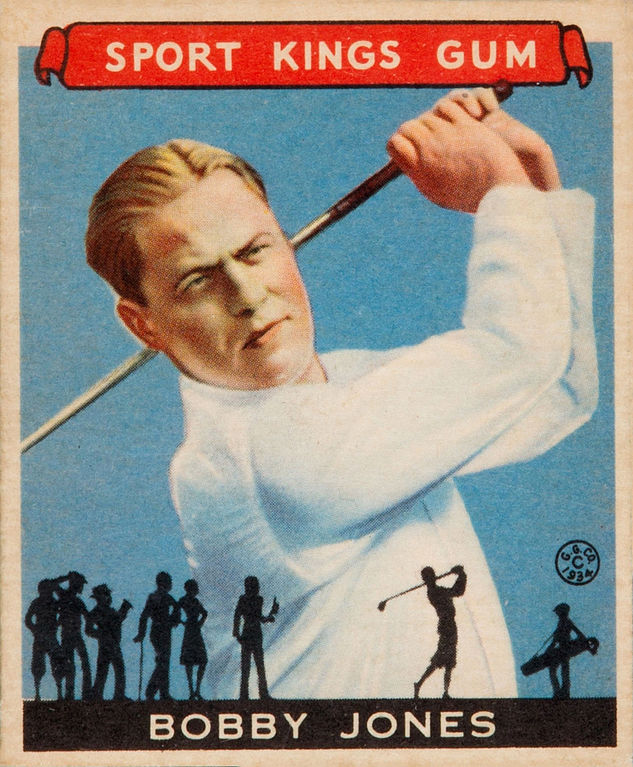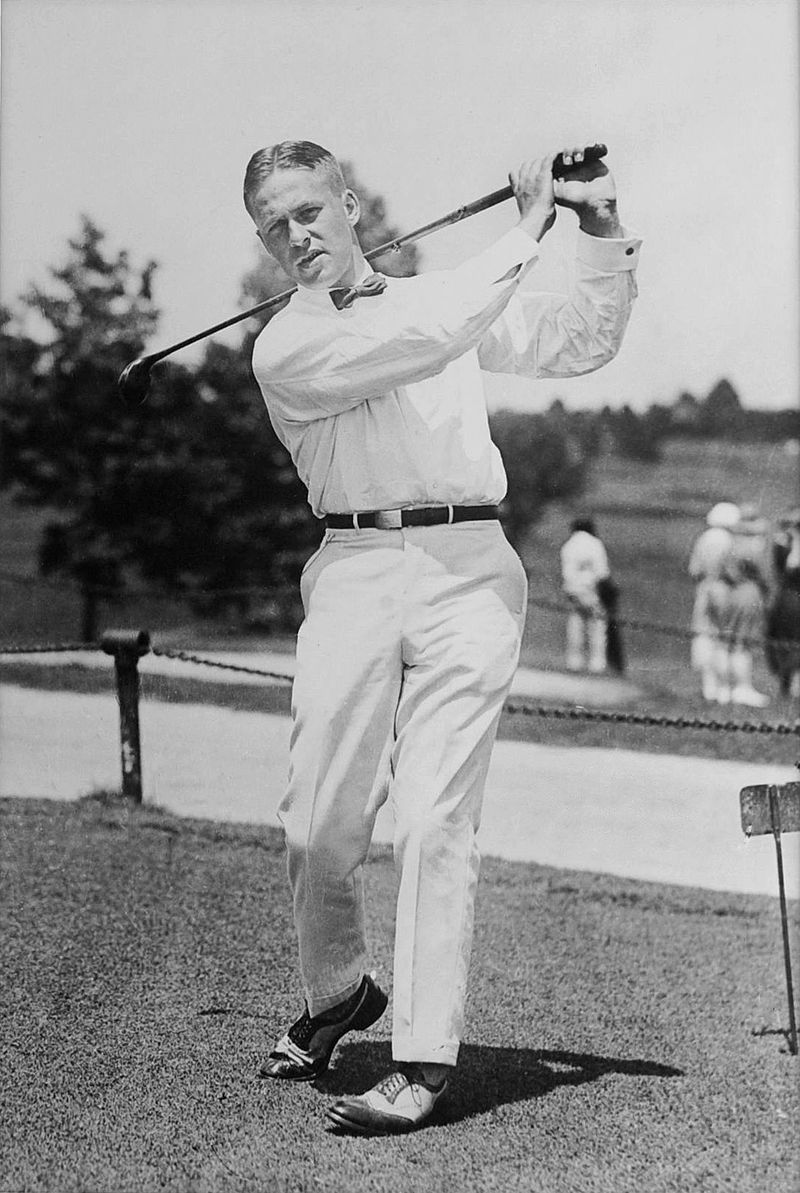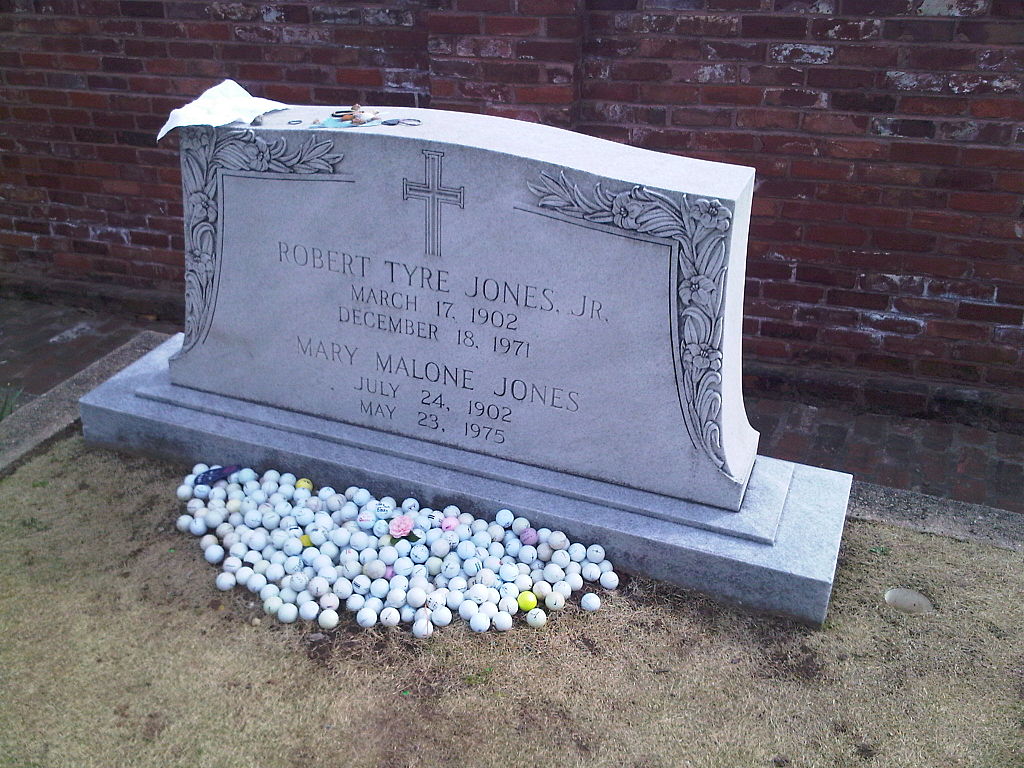Legends of the Green: Bobby Jones
May 2nd 2017

Bobby Jones was still two legs shy of winning the Grand Slam in 1930 when he was feted with a ticker-tape parade in New York.
The beloved golfer had won the first two legs—the British Amateur at St. Andrews and British Open at Royal Liverpool—and arrived home to a hero’s welcome. He went on to win the second two legs—the U.S. Open and Amateur—and remains the only person in history to capture the Grand Slam in a calendar year. (The amateur tournaments have since been replaced by the Masters and the PGA Championship.)
Then, adding to the mythical quality of his story, he promptly retired two months later, at the age of 28, to devote more time to his family and law practice.
Jones had become the greatest amateur in history, utterly dominating the sport in the 1920s. Over a brief, but prodigious, seven-year span, he roared to 13 major victories—a record that would hold up for more than four decades.
To think this Georgia gentleman on the linkswas once known as a spoiled, ill-tempered child, whotossed clubs in fits of rage!
Early Years
Robert Tyre “Bobby” Jones Jr. was born in 1902 in Atlanta, to wealthy parents. He was sick as a young child, and so his parents bought a summer house next to the East Lake Golf Club. He was swinging clubs by six years old, learning by mimicking the country club pro Stewart Maiden.
He shot an 80 at East Lake when he was just 11, and, three years later, shouldering huge expectations after making headlines across the U.S., he played in his first U.S. Amateur. He won two matches and was eliminated in the third round.
It was a tough stretch of more than six years for Jones, who continued to struggle with his temper. When he hadn’t played up to his potential by the age of 20, many believed he never would. Jones was quoted as saying: “To me, golf was just a game to beat someone. I didn’t know that someone was me.”
Sportswriter Grantland Rice, who took a keen interest in Jones, wrote in The Saturday Evening Post in 1940: “Bobby was a short, rotund kid, with the face of an angel and the temper of a timber wolf. At a missed shot, his sunny smile could turn more suddenly into a black storm cloud … Even at the age of 14, Bobby could not understand how anyone could miss any kind of golf shot.”

At the 1921 British Open, he committed golf’s one unpardonable sin. Frustrated by his poor play, he picked up his ball on the 11th hole and quit—a moment he looked back on years later as his “most inglorious failure.”
And then he experienced an inexplicable transformation. The sullen, moody child blossomed into a young gentleman who garnered a reputation for his modesty, often calling penalty strokes on himself, even if it cost him a victory. He was a fierce competitor who was at his best when the pressure was highest.
His domination of the game in the 1920s included winning the U.S. Open four times, and finishing runner-up in four more.
It would have been a remarkable career for a professional golfer, but perhaps the most noteworthy part of Jones’ career is that he was an amateur. He didn’t play as often as the pros. He accepted no cash prizes.

Being a part-time athlete allowed him to pursue the other loves of his life—his education and a family. He received an engineering degree from Georgia Tech, and then a degree in English literature from Harvard two years later. He went on to study law at Emory University, and, after just three semesters, passed the bar exam and began practicing at his father’s law firm. That was two years before his Grand Slam win.
He married and had three children.
Jones continued to golf for fun after retirement. The one exception was The Masters, in which he emerged from retirement to play in each year.
He was confined to a wheelchair over the final years of his life, because of a condition called “a syringomyelia” which was a cavity in his spinal cord that filled with fluid that caused pain and then a loss of feeling. He was believed to have weighed between 60 and 90 pounds when he died in Atlanta in 1971.
The movie Bobby Jones: Stroke of Genius was released in 2004, chronicling Jones’ life. The movie marked the first time that Scotland’s St. Andrews had given permission to film on location. American actor Jim Caviezel played the part of Jones.
Jones remains the only person to complete the Grand Slam in a calendar year, prompting the Atlanta’s O.B. Keeler to dub it the “Grand Slam,” a term he borrowed from the game of bridge. Tiger Woods is the only golfer to hold a non-calendar year Grand Slam, winning all four tournaments consecutively over two years.
